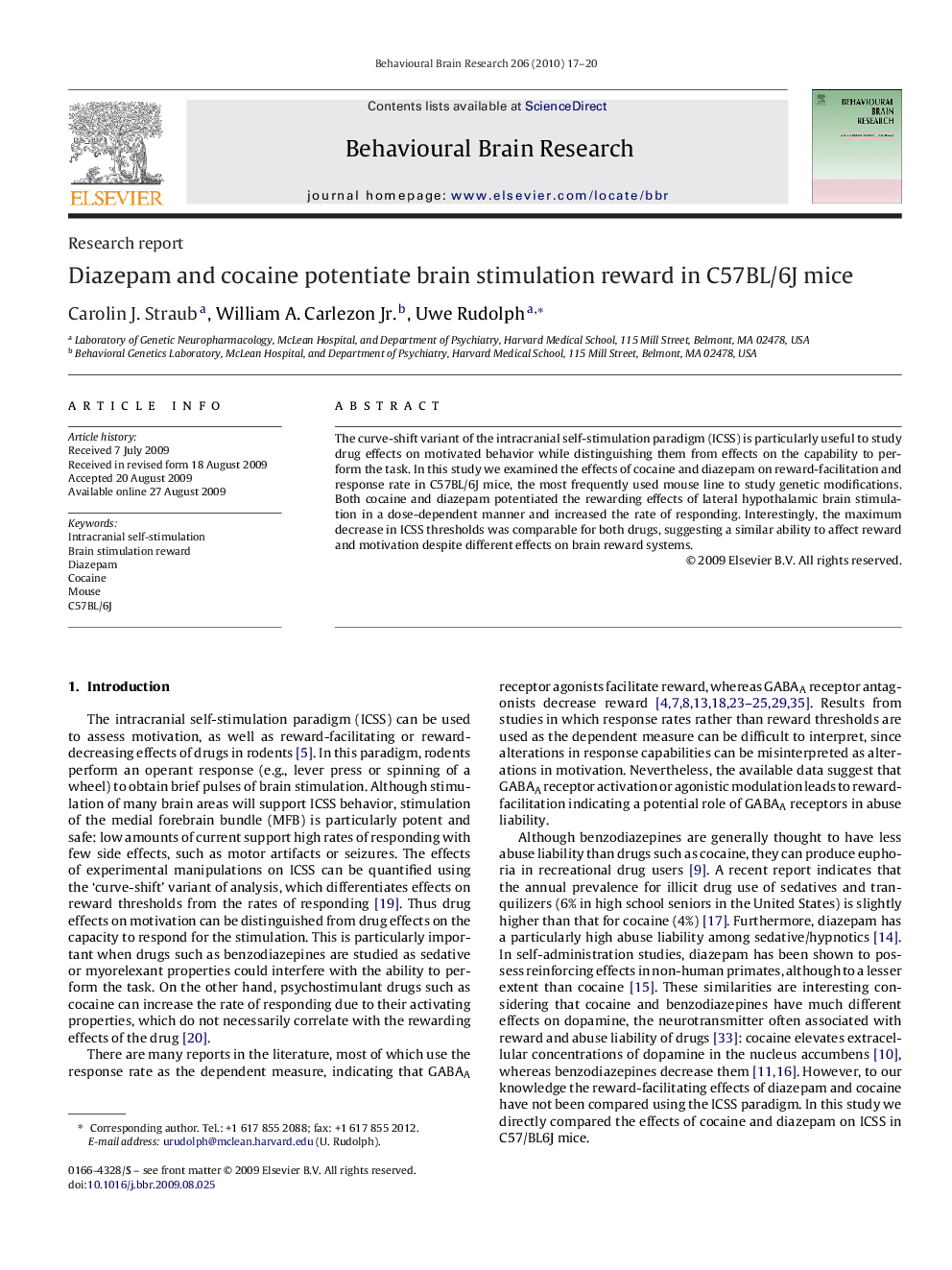| Article ID | Journal | Published Year | Pages | File Type |
|---|---|---|---|---|
| 4314572 | Behavioural Brain Research | 2010 | 4 Pages |
The curve-shift variant of the intracranial self-stimulation paradigm (ICSS) is particularly useful to study drug effects on motivated behavior while distinguishing them from effects on the capability to perform the task. In this study we examined the effects of cocaine and diazepam on reward-facilitation and response rate in C57BL/6J mice, the most frequently used mouse line to study genetic modifications. Both cocaine and diazepam potentiated the rewarding effects of lateral hypothalamic brain stimulation in a dose-dependent manner and increased the rate of responding. Interestingly, the maximum decrease in ICSS thresholds was comparable for both drugs, suggesting a similar ability to affect reward and motivation despite different effects on brain reward systems.
